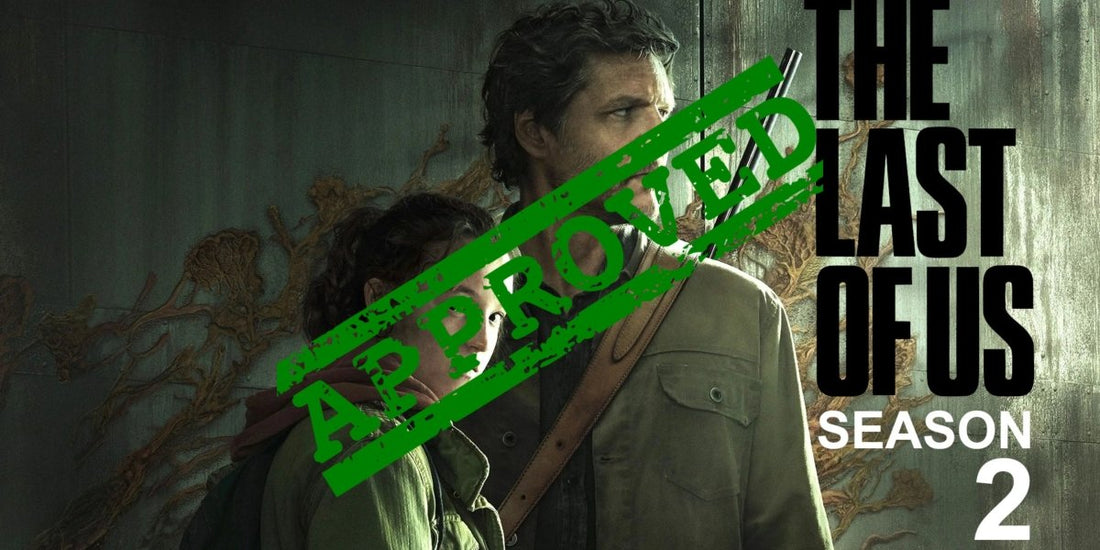
The Last of Us Season 2 Soundtrack Reviews: Where Soul Meets Sound
Share
"There is a certain power in a melody that speaks directly to the scars of a world—its grief, hope, and resilience. In The Last of Us Season 2, the music transcends being mere background noise and becomes the very heartbeat of a shattered civilization."
Table of contents
The Genre and Soul of The Last of Us Soundtrack
At its core, The Last of Us is not just a story of survival against unfathomable odds—it is a profoundly emotional journey narrated by its music. Many ask, what genre is the The Last of Us soundtrack? If you listen closely, you will hear that it masterfully blends elements of post-rock, ambient, and haunting acoustic folk. This genre fusion creates a sonic tapestry that is as bleak and tender as the series’ desolate world. Every chord strikes at the very essence of humanity's fragility in a decaying universe, making the music itself a character that consoles, haunts, and inspires.

Gustavo Santaolalla: Who Composed the The Last of Us Soundtrack?

A Signature Sound Across the Apocalypse
For those wondering, who made the The Last of Us soundtrack? Who composed the The Last of Us soundtrack? The answer is Gustavo Santaolalla—a name synonymous with this post-apocalyptic masterpiece. Santaolalla’s work on the original game established him as the musical architect of The Last of Us universe, and his return for Season 2 reinforces the series' emotional continuity. His compositions are a reminder that even in the darkest moments, the spirit can find solace in sound.
The Musical Tools: Ronroco, Banjo, and Beyond
Santaolalla’s unmistakable touch comes not just from his evocative melodies but also from the unique instruments he employs. His signature use of the ronroco infuses the score with an intimate, earthy quality that speaks directly to the wounded soul of the world. In Season 2, new sounds—such as the somber twang of a banjo—add layers of complexity, representing both the evolution of the narrative and the newfound dimensions of characters like Abby. These choices answer not only what genre is the The Last of Us soundtrack but also underline how the sound reflects the delicate balance between desolation and hope.
An Evolution in Sound: Analyzing the The Last of Us Season 2 Soundtrack
What Genre Is the The Last of Us Soundtrack?
The score defies a single label. It is an atmospheric melange of ambient, folk, and subtle electronic nuances. The auditory experience ranges from the raw, stripped-down acoustic passages to expansive, cinematic soundscapes that mirror the emotional turmoil of a world in ruins. This synthesis of genres is what makes the soundtrack not only a background score but a full-blown narrative instrument that punctuates every dramatic twist and tender moment.
Key Musical Moments: From "Future Days" to "Longing"and "Love Buzz"
One of the most stirring scenes in Season 2 is encapsulated in the premiere episode, aptly titled "Future Days." Here, tracks like "Love Buzz" by Nirvana interlace with Santaolalla’s original piece, "Longing." These songs set a tone that is as fragile as it is defiant—each note echoing the weight of Joel and Ellie's strained relationship.

Nirvana's rendition of "Love Buzz," originally a 1969 song by Shocking Blue, brings a raw, grunge-infused energy that underscores the tumultuous emotions of the characters. Santaolalla’s "Longing," with its minimalist instrumentation, provides a haunting backdrop that mirrors the series' themes of survival and human connection. Together, these songs set a tone that is as fragile as it is defiant—each note echoing the weight of Joel and Ellie's strained relationship.
Whether you're searching for insights into the Last of Us Season 2 soundtrack or seeking a detailed analysis of its musical composition, every whisper of sound in the series invites viewers to listen with their hearts.
Music as Narrative: How the Soundtrack Fulfills the Story
In Season 2, the soundtrack transcends its role as a mere accompaniment and becomes an active storyteller. It effortlessly narrates the unspoken tensions between Joel and Ellie, reflects the inner turmoil of each character, and heightens the visual storytelling with rhythmic precision. The interplay of silence and sound speaks volumes—often conveying what words cannot. The choice to incorporate timeless tracks alongside Santaolalla’s new compositions is a masterstroke, ensuring that each musical moment is a catalyst for emotional catharsis.
The score also answers the perennial question: who wrote the The Last of Us soundtrack? It is a labor of love from a composer who understands that every sonic detail matters. Through a meticulous assembly of sound, the music becomes the bridge between the familiar emotional landmarks of the original games and the freshly unfolding narrative of the TV series, enriching the story and inviting audiences into a world where every note holds a memory.

Our verdict - 9/10
The Last of Us Season 2’s music is far more than an auditory experience—it is the soul of the series. Gustavo Santaolalla, together with his creative team, has crafted a soundtrack that is both a homage to the original games and a bold reimagining of its narrative future. This isn’t just about answering who composed the The Last of Us soundtrack ; it is about appreciating how every carefully chosen note elevates the story, deepens character bonds, and transforms a dystopian landscape into a resonant, living emotion.
Genre and Soul: The soundtrack masterfully fuses ambient, folk, and cinematic elements, answering the question, what genre is the The Last of Us soundtrack?
Composer’s Genius: Gustavo Santaolalla’s work as the force behind the score cements his role as the musical visionary of this universe.
Narrative Depth: Every track, from the haunting "Longing" to the resonant cues reminiscent of Bill and Frank’s legacy, is intertwined with the story’s emotional arc.
If you’re searching for the best in video game-inspired music that fuels dramatic storytelling — The Last of Us original OST stands as a testament to the power of sound. Listen, feel, and let the music heal your weary spirit.

